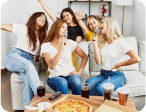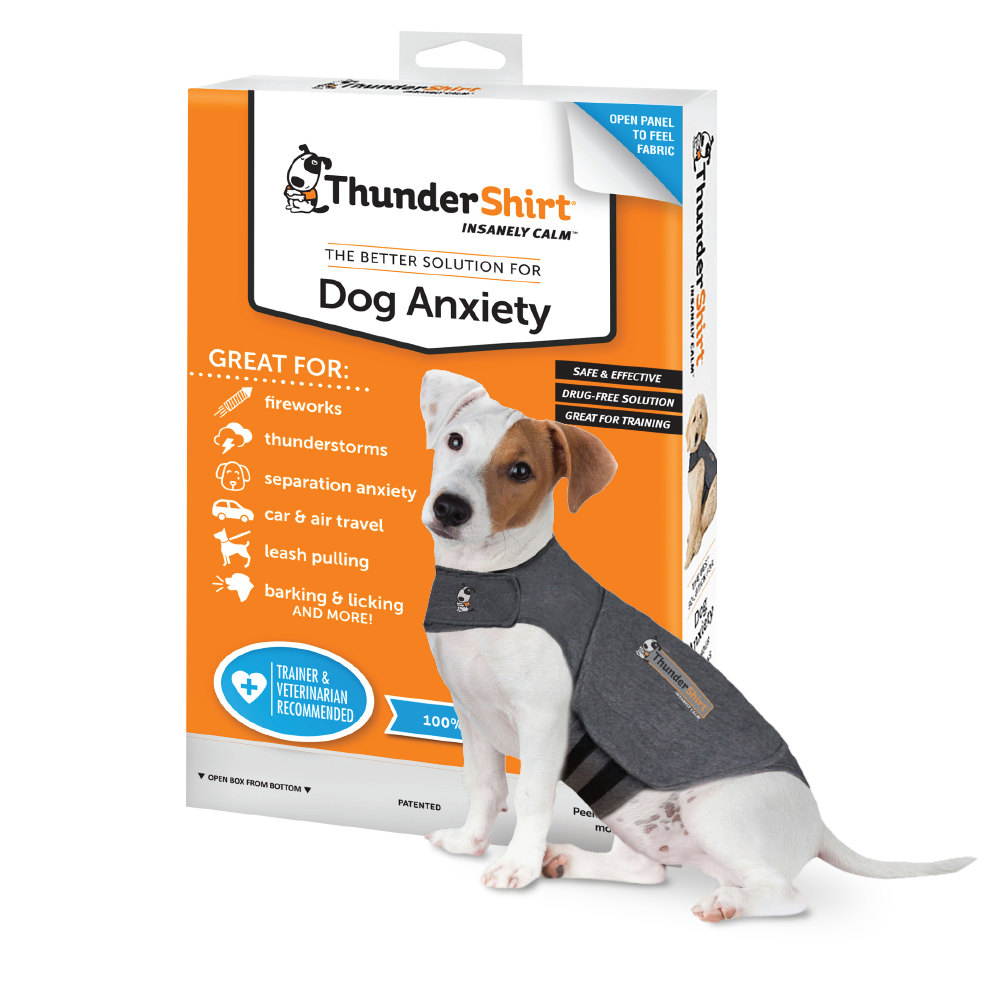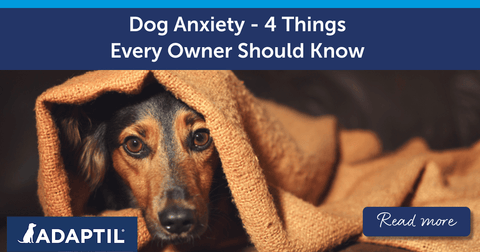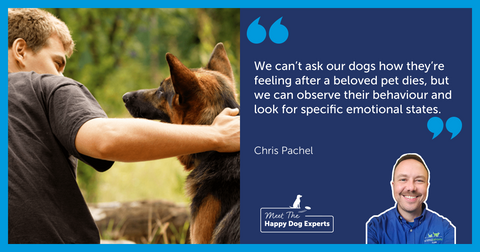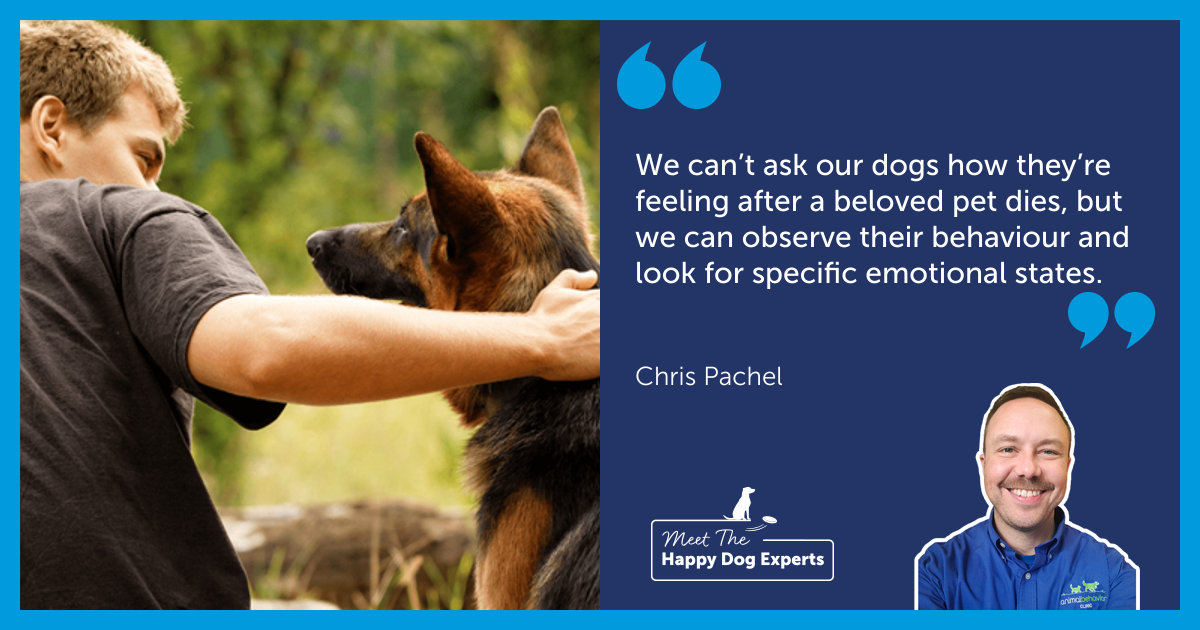
Happy Dog Expert: Help A Dog With Grief
When a pet dies, the entire family grieves, and that will often include your other pets. Dogs can grieve too, though not always in the ways we expect. It's important to recognise what your pup might be struggling with and to help them through the grieving process.
Grief is a response to the perceived or anticipated loss of someone or something that we have formed a bond of affection with. We can't ask our dogs how they're feeling after a beloved pet dies, but we can observe their behaviour and look for specific emotional states.
However, it's important to not project our own emotions onto our surviving pets. We need to be mindful to not practice anthropomorphism, which is when we attribute human characteristics to non-humans. More importantly, we should not make our observations exclusively through a human lens, known as anthropocentrism.
Instead, we need to observe and respond objectively. We also need to have empathy for the surviving dog's subjective experience. Just as in humans, dogs will experience and show grief in very different ways. A dog's grief is affected by their unique perception of their attachment to the other pet, as well as their coping strategies.
The loss may also affect the routine and lifestyle in the household, which could create sadness or confusion. For example, the death of a pet may change the way humans play or interact with their surviving dog or reduce their desire to take their surviving dog on walks.
We can't predict how our dog will grieve, but we can respond appropriately to what we observe. Sometimes a dog that had a strong bond with the lost pet may have a very brief grief response. Other times, there may be two pets that didn't seem to like each other very much, but your surviving dog seems particularly sad. Everyone navigates grief differently.
So, what should you look out for? Grief in dogs can manifest in a variety of ways. You may notice a loss of appetite or changes in eating patterns, signs of depression or social withdrawal, decreased activity, changes in social interaction with other family or household members, an increase in clinginess or seeking out of social interaction, or avoidance of interaction or physical contact.
Specific body language changes may include an overall down posture (tail tuck, crouched posture, ears back). This looks similar to how your dog shows fear or stress. Some signs of grief will appear to be behaviour issues, such as being more irritable or having trouble sleeping or waking up with their normal routine, but it could be the grief causing these problems.
How to Respond to Your Dog's Grief
It can be heartbreaking to watch your dog grieve especially while you are also sad but there are some positive ways you can support your pup. Here are a few things to keep in mind:
Give them time
Grief can be completely normal and doesn't necessarily need to be treated, as long as medical reasons for their behavioural changes have been ruled out.
Engage in more play time and attention
They may be missing out on playtime with the lost pet. Or, you may have unconsciously decreased your play time or walks because of your own sadness.
Go for walks at the same or similar time of day
It's important to keep a normal routine to maintain familiar cues and conditions.
Lean into enrichment
Try new activities that may be entertaining and mentally stimulating for the surviving pet. But, don't force the interaction if they're not that engaged.
Schedule time with familiar people or other animals
If your dog has favourite people outside the household, schedule some time with them. If your dog has other dog best friends or loves the dog park, make special trips. But remember that you cannot distract a dog from their grief, so don't try to force new relationships.
Watch for signs of separation anxiety
This is specific to the loss of the departed pet.
Watch for isolation distress
This may happen because your dog is truly alone in the house for the first time when the humans are away.
Be careful introducing a new pet
You can introduce a new pet when you're ready, but don't assume that just any dog or other pet will do. Your dog may not appreciate a newcomer to the home. Be prepared to introduce them slowly and address any issues. You may also have to halt adoption plans if your dog isn't ready.
Consult with a veterinary professional
If you have concerns about your dog's emotional health or are worried their emotional response is risking their health or safety, ask about the benefit of pheromones, supplements or medications. Using an ADAPTIL Calm Home Diffuser can help to support your dog and create a reassuring environment during this time of change.
We all grieve differently, including dogs. Watch for dog-specific signs of grief and you can help your pup through this process.





